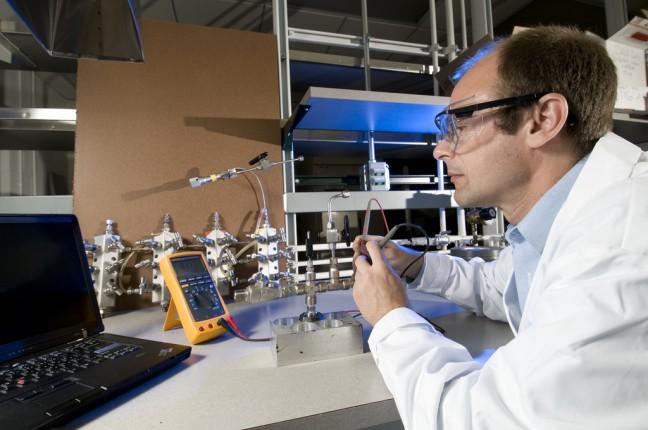The Great Lakes Bioenergy Research Center recently filed its 100th patent application, a milestone for the center.
Tim Donohue, director for the GLBRC, said the mission of the research center is to generate knowledge needed to produce liquid transportation fuels and valuable chemicals from the non-edible, or cellulosic, part of plant biomedicine.
This milestone is especially significant because the GLBRC has reported 50 percent more inventions than expected for a research center given the funding level and size, Donohue said. He said he believed this was because of the way they have worked together as a facility to attack problems and solve issues.
“We have taken a team approach to solve very difficult problems around the growth of plant material,” Donohue said.
In 2007 the U.S. Department of Energy established the GLBRC. The University of Wisconsin leads the GLBRC, with Michigan State University as a major partner, and it receives funding from the DOE.
Donohue said there were more than 400 people working in the center, and almost 100 of them were undergraduate students. He said there are undergraduates who have their name on patents and, through the GLBRC, are able to do first rate science and research.
“They [undergraduates] can see the potential for the concepts they are learning in their classes and in the lab with us, to really help create a new economic and energy future for the country and the world,” Donohue said. “For me, this is the Wisconsin Idea in action.”
100 patents means more inventions & Industry in #WI, more collaboration & partnerships in #WI. More @wisidea in #WI. http://t.co/ufkrA6o2dZ
— Great Lakes Bioenergy Research Center (GLBRC) (@GLBioenergy) February 25, 2015
The Wisconsin Alumni Research Foundation is the patenting organization that works with the GLBRC and the rest of UW. Jennifer Gottwald, licensing manager at WARF, said they evaluate inventions from the GLBRC and decide whether to patent them. From there, she said WARF works to help ideas get commercialized into products and help bring research funding back to the university.
Gottwald said she expects the growth from the GLBRC to continue, and they do a lot of important work towards directing research to real world applications. She said the funding from the DOE is set to end in a few years and she hoped it would continue in the future.
“The leadership of the GLBRC really wants the money to be used to solve problems that have applications in the real world,” Gottwald said. “I hope the Department of Energy will still continue to support these centers throughout the U.S.”


